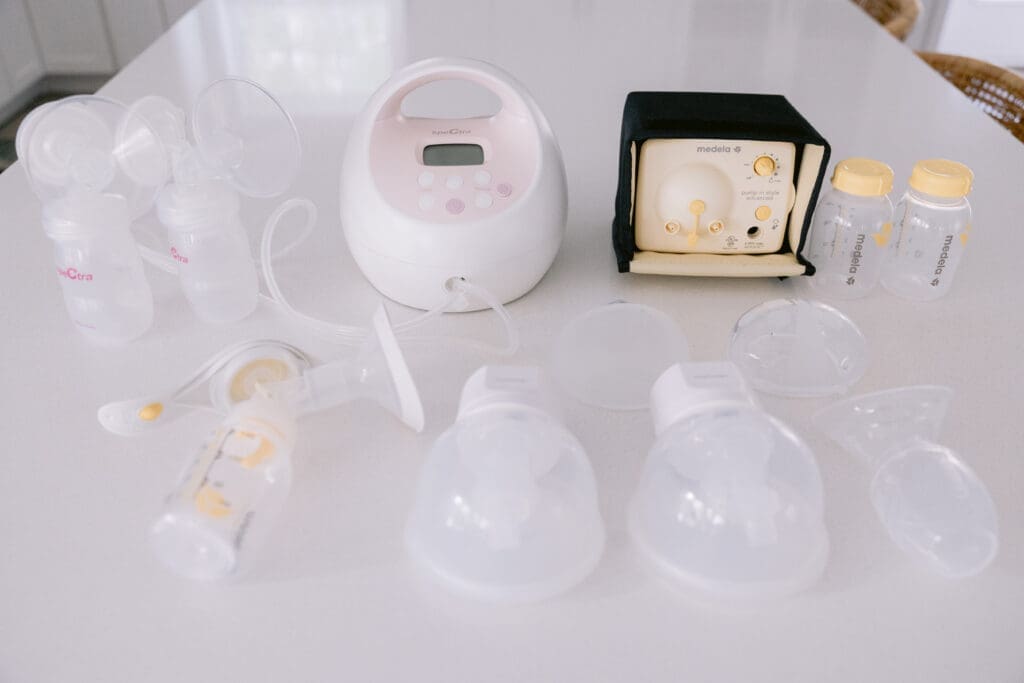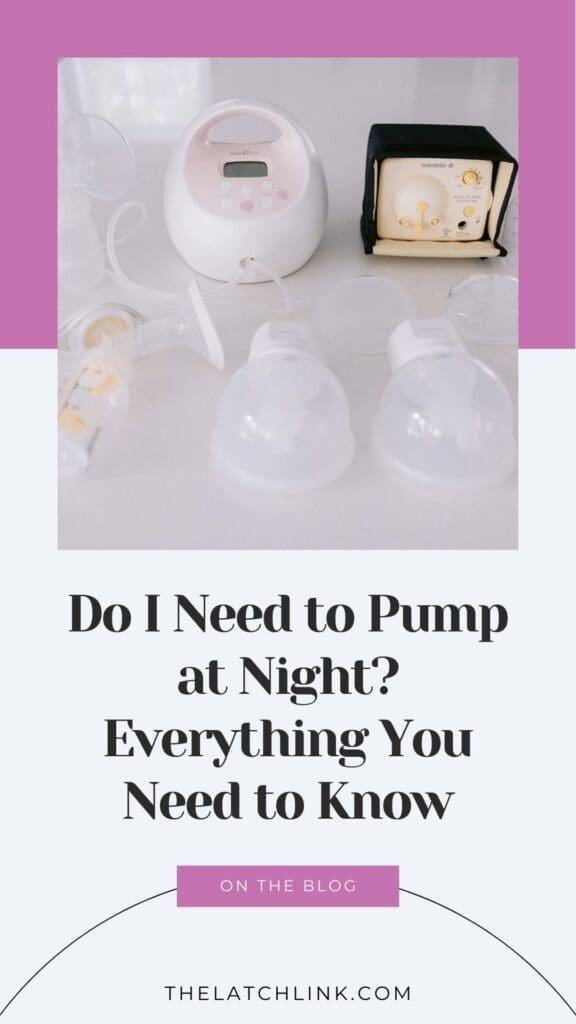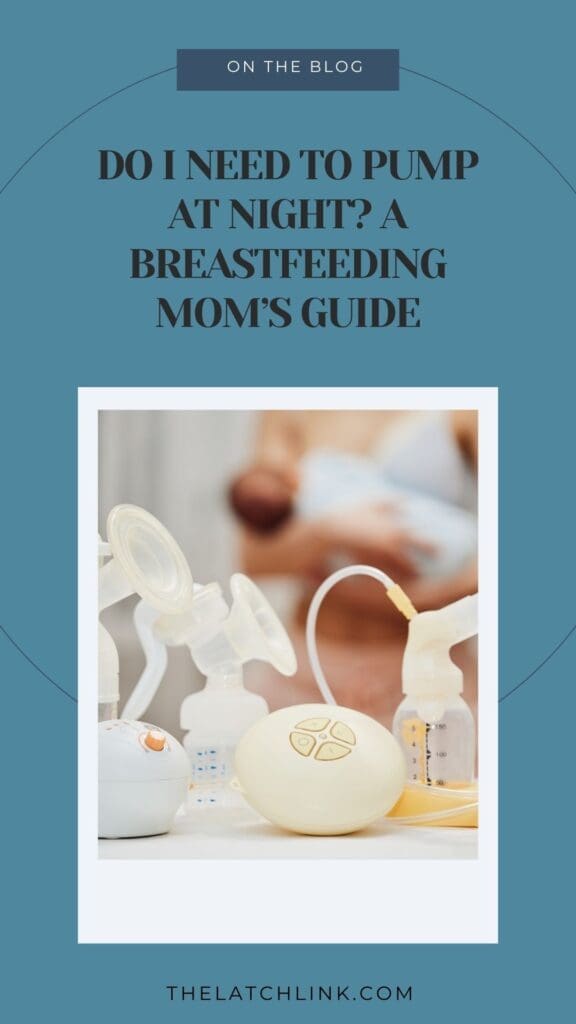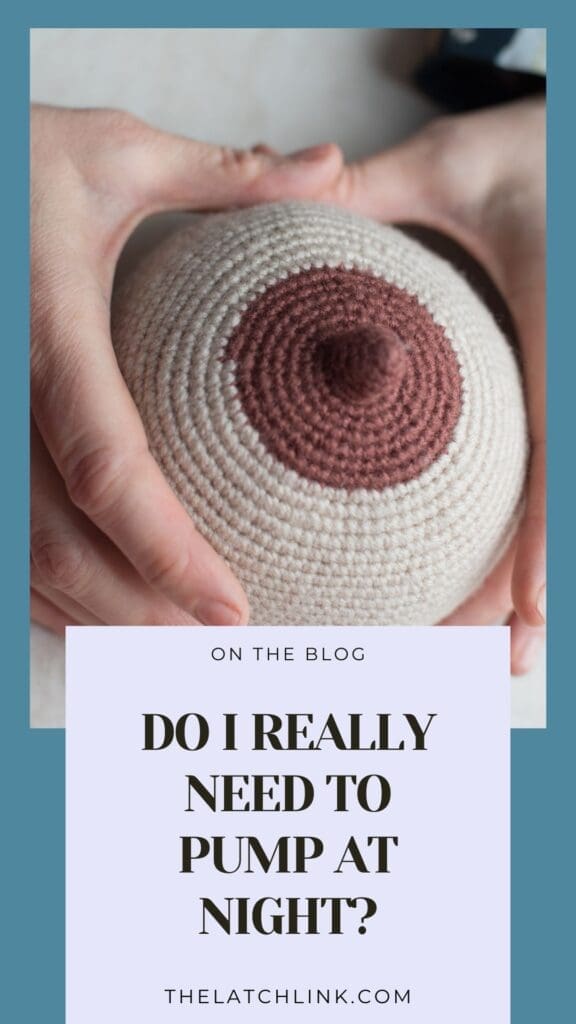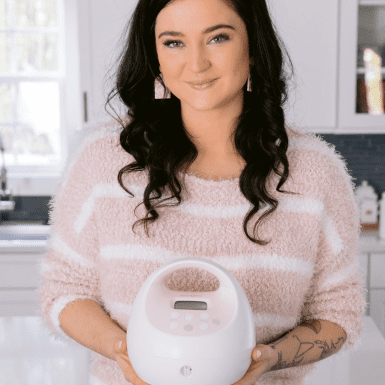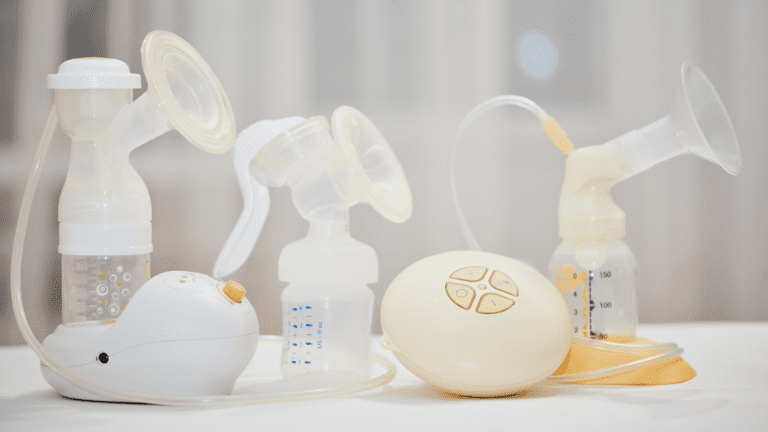Do I Need to Pump at Night? When (and How) to Drop Night Pumps
Nighttime pumping can feel like an unavoidable part of breastfeeding—and you might find yourself asking do I need to pump at night? The answer truly depends on your specific situation. While some moms can safely drop night pumps as early as 12 weeks, others may need to continue to protect their supply. So how do you know what’s right for you?
If the thought of uninterrupted sleep sounds like a dream, you’re not alone. But worries about milk supply, engorgement, and clogged ducts can make the decision to drop night pumps feel overwhelming. The good news? With the right approach, you can prioritize both your rest and your milk production. By understanding your body’s signals and making gradual adjustments, you can transition smoothly—supporting both your breastfeeding goals and your well-being.
Disclosure: This post contains affiliate links. If you click on a link and make a purchase, I may earn a small commission at no extra cost to you. I only recommend products I genuinely trust and believe will be helpful to my readers.You can read more about the affiliate disclosure here.
Why Nighttime Pumping Matters
Before deciding whether to stop, it’s important to understand why nighttime pumping is often recommended. Prolactin, the hormone responsible for milk production, is at its highest levels during the night. This means that nighttime feeds or pumps can be especially beneficial for maintaining supply, particularly in the early months of breastfeeding. For moms who pump exclusively or struggle with low supply, missing night sessions can result in a noticeable drop in milk production.
Who Can Stop Pumping at Night?
If you have a well-established milk supply and your baby is nursing effectively during the day, you may be able to safely stop pumping at night. By around 12 weeks, many moms notice their supply regulating, meaning they can go longer stretches without expressing milk. However, it’s always best to check with an International Board-Certified Lactation Consultant (IBCLC) to ensure your body is ready.
Signs You May Be Ready to Drop Night Pumps:
- Your baby is sleeping longer stretches and nursing efficiently during the day.
- Your breasts feel comfortable throughout the night without becoming overly full or engorged.
- Your daily milk output remains stable even when you skip a night pump occasionally.
- You don’t experience clogged ducts or mastitis when going longer between pumps.
Who Should Keep Pumping at Night?
Some moms will benefit from keeping at least one night pump in their routine. You may need to continue if:
- You’re exclusively pumping and rely on regular sessions to maintain your supply.
- You have a history of low milk supply and need the extra stimulation.
- You wake up engorged, uncomfortable, or prone to clogged ducts.
- Your baby isn’t gaining weight as expected, and your supply needs extra support.
If any of these apply to you, keeping a night pump may help prevent dips in supply and discomfort. The key is listening to your body and watching for signs that your supply is stable before making changes.
Join our Email List!
How to Safely Drop Night Pumps
If you’re ready to stop pumping at night, doing it the right way is key to avoiding clogs, mastitis, and supply issues. Here’s how to make the transition smoothly:
- Gradually Decrease Pumping Time: If you normally pump for 20 minutes, start by cutting it down to 15, then 10, and so on.
- Reduce the Amount Expressed: Instead of fully emptying your breasts, pump just enough to relieve discomfort. This signals your body to produce less milk at night.
- Space Out Sessions: Slowly increase the time between pumps until your body adjusts to longer gaps.
- Monitor for Clogs or Engorgement: Use gentle massage and warm compresses if you notice any lumps or discomfort as your body adjusts.
- Stay Hydrated and Nourished: Your body will regulate more smoothly if you continue to take care of yourself with proper hydration and nutrition.
Making Nighttime Pumping Easier
If you still need to pump at night, there are ways to make it less disruptive to your sleep:
- Use a Hands-Free Pumping Bra so you can stay relaxed while expressing milk, freeing up your hands for scrolling through your phone, reading a book, or simply closing your eyes to rest while the pump does its job.
- Keep a Wearable Pump by your bed for a more convenient, wireless option that lets you pump without getting up, allowing you to stay comfortable and avoid fully waking up in the middle of the night.
- Store milk in a Bedside Mini Fridge to eliminate the need for late-night trips to the kitchen, keeping everything within reach so you can quickly store expressed milk and get back to sleep faster.
- Apply Breast Ice or Heat Packs to relieve engorgement and prevent clogs, especially if your breasts become uncomfortably full overnight. Cold packs can reduce swelling, while warm packs can encourage milk flow and help ease discomfort before a pump session.
- Use a Nursing Nightlight with soft, dim lighting to avoid fully waking up, making it easier to fall back asleep after your session. A warm-toned light is best, as bright or blue-toned lights can disrupt your natural sleep cycle.
- Set Up a Comfortable Pumping Space with a supportive chair, pillows, and a cozy blanket to make nighttime pumping feel less like a chore. Having everything within arm’s reach can help create a peaceful routine, making those nighttime sessions feel more manageable and less disruptive.
What to Expect When Dropping Night Pumps
Once you stop pumping at night, your body will need time to adjust. Some moms notice temporary engorgement or minor leaks in the morning as their supply regulates. Using absorbent nursing pads can help manage leaks while your body adapts.
It’s also normal to feel a slight decrease in overall milk supply at first. If you notice a significant drop, you can try adding an extra pumping session during the day or power pumping to boost supply.
Encouragement for Tired Moms Googling “Do I Need To Pump At Night”
Deciding whether to pump at night is a deeply personal choice, and whatever you choose, know that you’re doing what’s best for you and your baby. Breastfeeding and pumping are hard work, and every mom’s journey looks different. Give yourself grace as you figure out what works best for your body and routine.
If you’re feeling unsure, working with an IBCLC can help you make a personalized plan that keeps your supply strong while giving you the rest you deserve. No matter what, know that you’re doing an amazing job!
Loved this post? Don’t forget to Pin it!


